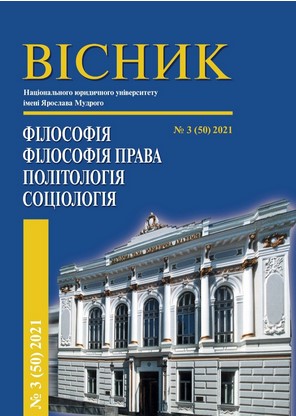НОРМАТИВНІ АКТИ ЕТИЧНОЇ ПОВЕДІНКИ ПОЛІЦЕЙСЬКИХ ЯК НЕОБХІДНА ЧАСТИНА ЗАКОНОДАВЧОГО ЗАБЕЗПЕЧЕННЯ ЇХНЬОЇ СПІВПРАЦІ ІЗ СУСПІЛЬСТВОМ
REGULATORY ACTS OF ETHICAL CONDUCT OF POLICE SERVANTS AS AN ESSENTIAL PART OF LEGISLATIVE ENSURING OF THEIR COOPERATION WITH SOCIETY
Author(s): V. A. TrofimenkoSubject(s): Ethics / Practical Philosophy, Labor relations, Penal Policy
Published by: Національний юридичний університет імені Ярослава Мудрого
Keywords: ethics; ethical conduct; law enforcement officers; police servants; regulations (the codes) of ethical conduct;
Summary/Abstract: The author focuses on the continuing European integration, which demands renovation of the regulatory and legal framework of the government, including the law-enforcement branch. Having key laws, the Ministry of Internal Affairs developed and adopted the Regulations of ethical conduct for police servants. The aim of the work is the analysis of other states’ experience and the analysis of the national Regulations based on this analysis. In the publication is analyzed the regulatory framework of the European countries from the point of existence of regulations (the codes) of ethical conduct of police servants. There is a shot analysis of the deontological regulatory acts of Belgium, Luxembourg, the Netherlands, Northern Ireland and also the lead countries of the European Union: France and Germany. The attention is payed on the government’s different slant on the question of regulation of the ethical and moral conduct of the law enforcement officers. Some adopt declarative acts, others establish codify acts. The author emphasizes the best moments. At the end of the analysis is made a small generalization. Further the author goes on with the analysis of the content of the national Regulations of ethical conduct of servants. There is an analysis of five sections of the Regulations. The author is surprised, that the Ministry of Internal Affairs doesn’t refer to the acts of the United Nations Organizations concerning to the given problem. The author misunderstand the particular section about handling apprehended citizens and also incomprehensible (and even incorrect) title of the one section. The important norms of rights and working conditions for police servants weren’t displayed. Although the nature and the content of the Regulations demand such norms. Speaking about encouragements and punishments, the authors weren’t able to indicate their list, so they referred to other regulatory acts. Overall, the regulations of ethical conduct of police servants gave a positive impression on the author. However, there is still feeling of the definite incompleteness and crudity of this deontological document.
Journal: Вісник НЮУ імені Ярослава Мудрого. Серія: Філософія, філософія права, політологія, соціологія
- Issue Year: 35/2017
- Issue No: 4
- Page Range: 175-185
- Page Count: 11
- Language: Ukrainian

